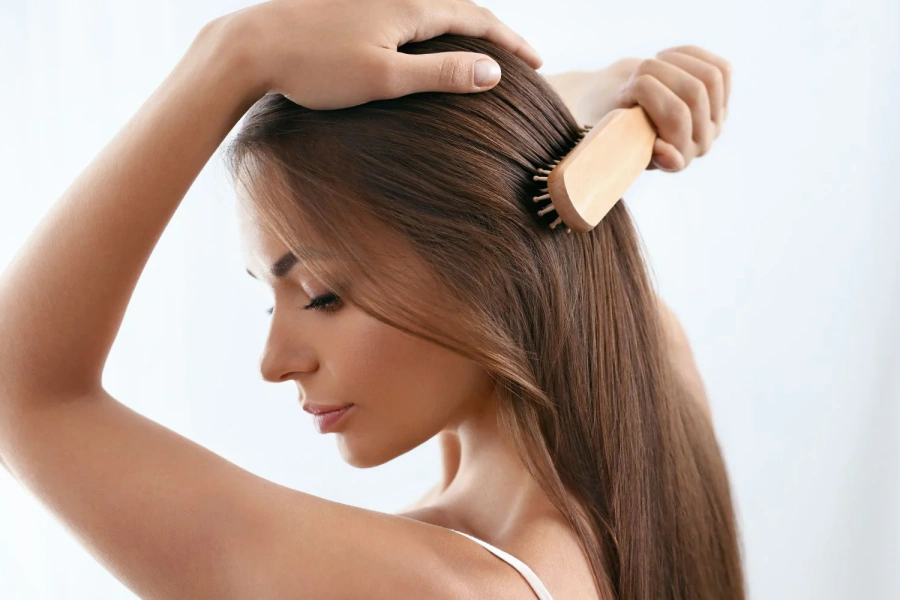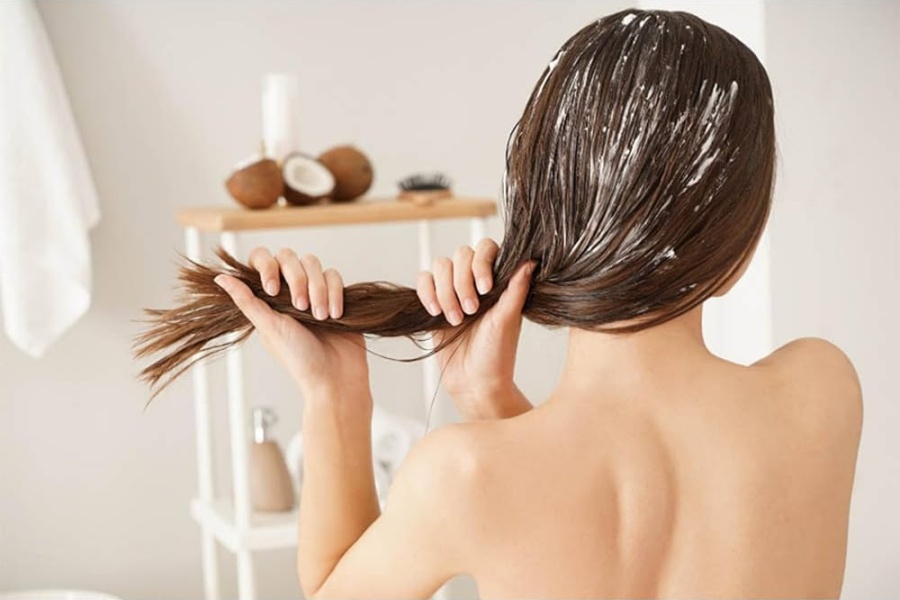Cleansing is the first step in any hair care regimen. Choosing a sulfate-free shampoo is advisable, as sulfates can strip natural oils from your hair, leading to dryness and frizz. Instead, look for gentle, hydrating formulas that cleanse without compromising moisture. Washing frequency varies by hair type; for instance, those with oily hair may need to wash more often, while individuals with dry or curly hair might benefit from washing less frequently. When washing your hair, focus on the scalp, allowing the shampoo to cleanse the lengths as it rinses out.
Conditioning is equally important, as it helps replenish moisture and detangle hair. A good conditioner should be rich in nourishing ingredients such as argan oil, shea butter, or aloe vera. For added benefits, consider using a deep conditioning treatment once a week. This will provide an intensive moisture boost, especially for dry or damaged hair. Applying conditioner primarily to the mid-lengths and ends of your hair will prevent your scalp from becoming oily while ensuring that the most damaged areas receive adequate care.

Heat styling tools can be a double-edged sword. While they allow for versatile hairstyles, excessive heat can lead to significant damage over time. To minimize this risk, always use a heat protectant spray before styling. This creates a barrier between your hair and the heat, reducing the likelihood of breakage and split ends. Additionally, try to limit the use of heat styling tools and embrace air-drying whenever possible to maintain your hair’s integrity.
Regular trims are vital for healthy hair. Even if you are growing your hair out, trimming the ends every six to eight weeks can help eliminate split ends and prevent further damage. This practice promotes a healthier appearance and encourages growth by removing dead weight. If you are unsure about the right amount to trim, consult a professional stylist who can recommend a suitable plan based on your hair type and goals.
Incorporating a balanced diet into your routine can also have a profound impact on your hair health. Nutrients such as vitamins A, C, D, E, and minerals like zinc and iron are essential for hair growth and strength.

Foods rich in omega-3 fatty acids, such as fish and nuts, can promote scalp health and shine. Staying hydrated is equally important, as water supports cellular functions and contributes to overall hair vitality.
Lastly, be mindful of your hair care tools. Regularly cleaning your brushes and combs will prevent the buildup of product residue and oils that can transfer back onto your hair. Opt for tools made from natural materials, as they tend to be gentler on hair compared to plastic alternatives. Additionally, consider using a silk or satin pillowcase to reduce friction while you sleep, which can help prevent breakage and frizz.
By following these essential hair care tips, you can cultivate healthy, vibrant hair that reflects your personal style and enhances your confidence. A consistent routine tailored to your hair type will yield the best results, allowing you to enjoy the beauty of your hair for years to come. Embrace these practices and watch your hair transform into its healthiest version.

